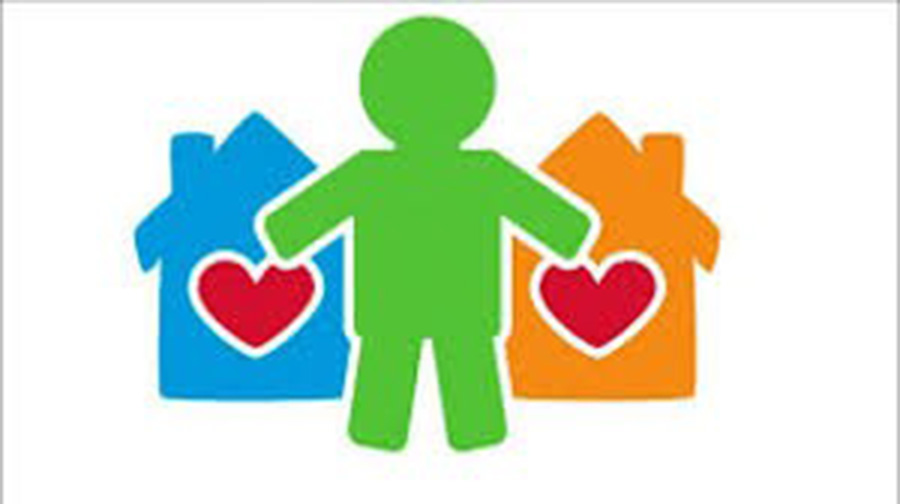With the drastic changes in our day-to-day lives from the pandemic and social distancing, many families are experiencing anxiety, confusion, and exacerbation of existing conflicts. Many separated co-parents are finding themselves suddenly having to renegotiate their parenting time, work through differing risk assessments, and collaborate in new and unfamiliar ways to try to protect their health and that of their child during these uncertain times.
There isn’t one right way to share parenting time safely while social distancing, but in our mediation and collaborative family law practice, we have some ideas that we think would be helpful to keep in mind while you’re trying to figure out what’s best for your family.
1. Expect disruption: If your child’s school was indefinitely closed for another reason, even if there was no virus, you and your co-parent would have your routine and agreements significantly disrupted and need to renegotiate how you work together to take care of your child. Don’t approach this change with the goal of keeping things as close to the same as you can; instead, be realistic about how your lives and your child’s life are different than they used to be, and co-create new plans that reflect those differences. Things are changing quickly and unpredictably, and it can be tempting to freeze into rigidity and cling to the structure you have to protect yourself from uncertainty. Try to resist this urge in favor of being flexible and practical; make agreements based on what is happening now, not what happened a month ago or what you are afraid may happen in a month, and know that when circumstances shift, which they inevitably will, your agreements can shift to accommodate them.
2. Focus on your child’s needs: Children are more adaptable than adults, but they take their cues from us. Be practical, and make sure that you’re prioritizing what’s best and safest for your child. In times of stress and uncertainty, it’s normal to act from a place of scarcity and fear, and revert into old communication patterns. Instead, slow down and refocus on what you have in common — prioritizing your child. Try taking a moment to talk about what you love about your child before going back to negotiating. If the plans that seem like they would be safest for your child feel unfair or inequitable, try to trust that it’ll work out. If you miss parenting time, you can agree to make it up later. If you have to cancel a vacation with your child, you can take it together when it’s safer. If your household is particularly high-risk — for example, if you’re not able to self-isolate, or if there are aging or immunocompromised family members to care for — it may be safer to let your visitation transition to phone and video calls for a little while. These decisions won’t be easy, but that’s not because they’re wrong.
3. Get on the same page about exposure risk and err on the side of caution: Whether you decide that your child will stay with one parent or the other for the duration of the shutdown or continue to travel back and forth between two households, make sure that you’re both prioritizing protecting the health of everyone with whom you come in contact. Make a plan for pick-up and drop-off that minimizes contact, and consider the commute as a factor in deciding whether it’s safe to continue in-person parenting time for both parents. If you’re still sharing parenting time, agree on what steps both households are taking for minimizing exposure, because having someone go back and forth between two households will effectively expose everyone in both homes to the same level of risk as the highest-risk member of either.
4. Be creative: We don’t have to expect the tools and agreements that worked in a very different world to work right now. You can use technology, like Skype and Facetime, to facilitate contact if your child is not going to be able to see their other parent for some time. Work together to agree on new schedules, routines, and traditions and stick to them to give your child some stability and safety in an unstable time.
5. Listen: When you’re making plans with your co-parent, listen to what they’re telling you and try to understand where they’re coming from. Repeat it back to them and ask them to confirm that you’ve got it right. If you think they seem unreasonable, try to empathize with the feeling or need they are expressing and repeat it back to them; they may be acting from a place of anxiety and concern about the safety of their child, which you share, and you can agree with that priority even if not the means of achieving it. In high-stress times, it’s easy to escalate by reacting to what you imagine your co-parent is saying, rather than responding to what they’re actually saying. Slow down and try to stay in the moment, rather than reacting to a painful past or a scary future.
6. Be prepared: If you don’t have advance directive and guardianship documents prepared, now is a good time to do that work. Make plans with your co-parent for what to do if someone in either household, or the child, gets sick. In New York and many states, a Will is the means to appoint a guardian for a child if both parents pass away while the child is a minor; although this is a difficult and painful thought to contemplate, it is essential for parents of kids under 18 to get this done. If something goes wrong, you’ll have given yourself a gift by not having to figure out what to do on the fly.
7. Take care of your own mental health: Experts suggest that it’s crucial to let yourself grieve the loss of normalcy and connection that we are all experiencing, and to give yourself space for the anxiety and anticipatory grief that can feel like an oncoming storm. Because the feeling of danger is both inescapable and intangible, these circumstances can be very damaging to our sense of safety in our own lives, homes, and bodies. Do grounding exercises to quell anxiety and panic. Consider seeking out phone or video therapy to build up your resilience. When it’s overwhelming, try to come into the present instead of the nebulous and frightening future, and take what comes one moment at a time.
8. Don’t forget your child’s mental health: While children seem to be less susceptible than adults to infection by this virus, they are always susceptible to developmental trauma and mental health impacts of adverse events. Give them space to talk and process, and treat what’s happening now as potentially traumatic. You can read more about the impact of this on children here: https://www.theatlantic.com/health/archive/2020/03/what-coronavirus-will-do-kids/608608/
9. Do your best to distinguish between what you can and can’t control: Your media intake is within your control. Your handwashing is within your control. Hospital capacity, the federal government, your neighbor’s behavior, your landlord . . . are not, and nothing will make you feel more helpless than trying to control things that are fundamentally outside the scope of your influence. Make agreements with your co-parent that enable you both to do things that you can control, and accommodate the things that you cannot.
10. Seek help: Many mediators, therapists, and parenting coaches will work with you by phone or video to help you work out how best to adapt. The courts are closed to all but emergency filings in New York and most of the USA, but court intervention isn’t usually the most effective way to solve parenting problems anyway. The skills and guidance that a professional can share with you will help you get through this scary time. You’re not the only person facing this, and you don’t have to do it alone.
The team at Diana Adams Law & Mediation, PLLC is here to support all families in New York State, including yours. Contact us for more information.
Disclaimer: This article does not constitute legal advice. For legal advice tailored to your situation, please consult an attorney in your state.






